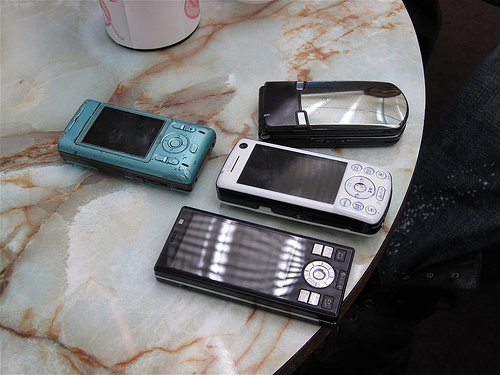Busy people with busy lives depend on their mobile devices to connect them to the many obligations they're accountable for: responding to emails, remembering appointments, checking in with family and friends.
A New York Times article, "Digital Devices Deprive Brain of Needed Downtime," argues that spending every spare minute -- whether it's standing in line at the coffee shop or waiting for the water to boil at home -- fidgeting with our gadgets prevents our brains from processing information in order to be creative and come up new ideas.
My question: are digital devices the culprit, or can old-fashioned books and magazines count as obstacles that "prevent the learning process"?
The writer cites a recent study:
At the University of California, San Francisco, scientists have found that when rats have a new experience, like exploring an unfamiliar area, their brains show new patterns of activity. But only when the rats take a break from their exploration do they process those patterns in a way that seems to create a persistent memory of the experience.
The researchers suspect that the findings also apply to how humans learn.
“Almost certainly, downtime lets the brain go over experiences it’s had, solidify them and turn them into permanent long-term memories,” said Loren Frank, assistant professor in the department of physiology at the university, where he specializes in learning and memory. He said he believed that when the brain was constantly stimulated, “you prevent this learning process.”
The writer interviews gym-goers who rely on watching TV on their exercise machines, making the point that they're not allowing their brain to experience necessary downtime. But what if they're reading magazines or books? What if they're talking on the phone, or chatting with an exerciser next to them?


